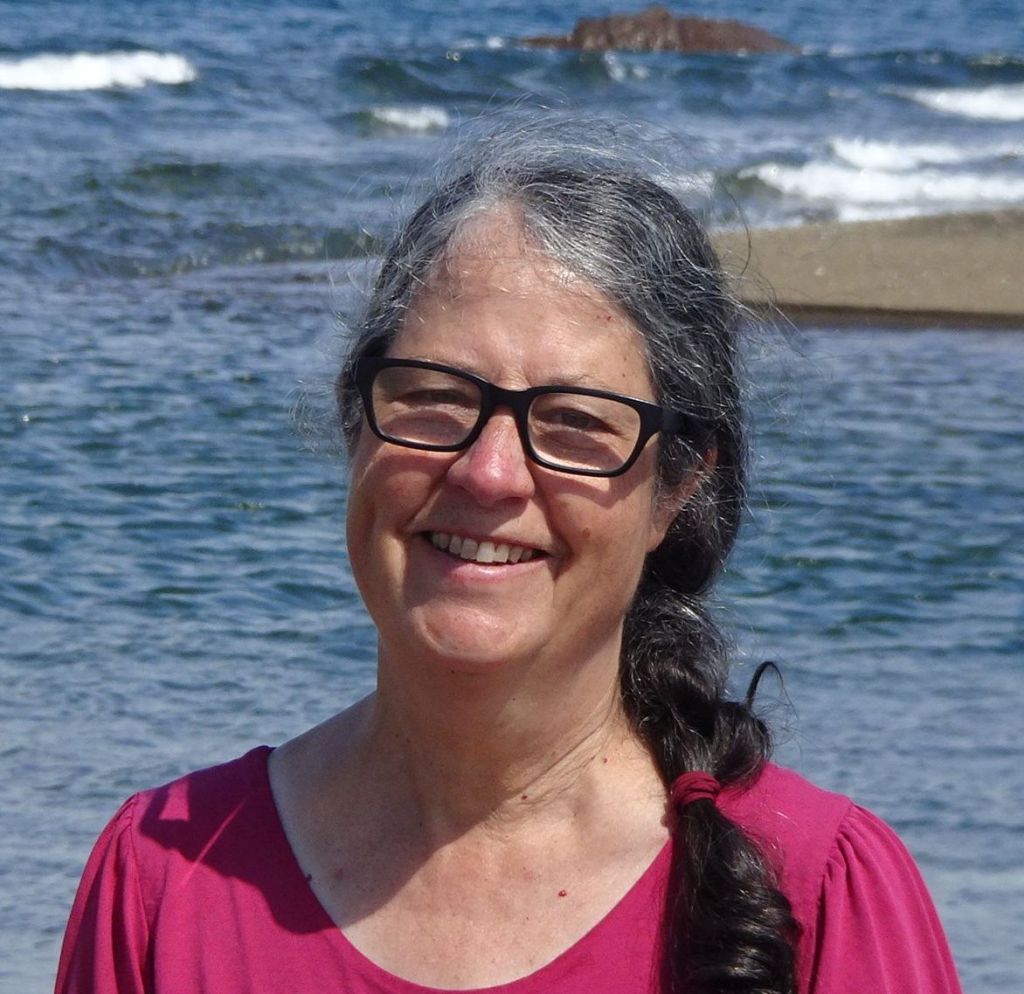
Marjorie Turner Hollman is a writer who loves the outdoors. Link to all Marjorie’s books.
One of the essays in my memoir, My Liturgy of Easy Walks: Reclaiming hope in a world turned upside down recalls a childhood game we played in the midst of one Florida summer. My siblings, friends and I gathered each night in the South Florida heat, shut our eyes tight and spun in circles. One person sat out the game, perched on the wall, keeping watch over us. We took turns climbing up onto the wall, assuming the role of watcher. When up on the wall we kept our eyes open, ready to alert anyone wandering near the street or too close to the wall.

I recently found a picture of my younger brother sitting on that wall, with my younger sister standing next to him. Sometimes a photo can make the difference in understanding a story…or not. Here’s the essay, just one of many included in the book. Enjoy.
Watching
The basic premise of the game, that summer of 1965 in South Florida, was for all of us to shut our eyes and turn around in circles in our front yard. Our goal was to keep spinning till we grew dizzy. A designated “watcher” sat on the five-foot-high brick wall that jutted a few feet out into my parents’ yard. The watcher’s job was to keep their eyes open and warn spinning children if they drew too close to the wall, or ventured near the street.
The designated watcher achieved this by calling out, “Go away from my voice” when we got too close to the wall. However, if we got close to the sidewalk, and thus, the street just beyond, they would call out, “Come towards my voice.” If, or more correctly when, someone fell down, we instituted a series of stages like “yellow light” or “red light” to slow the game down and keep the fallen player from getting kicked, sat upon, or squashed. The wall provided a perfect view of the entire front yard, kept the watcher from being twirled into, and was fun to sit on. We had no lack of volunteers for the position of “watcher.”
The game had no “point” unless you consider having silly fun, getting very dizzy, falling down, and making a lot of noise with friends to be a worthy goal. How we came up with our rules, or even who originated the idea has been forgotten. We played, and had fun for what felt like all summer, but was probably for just a few days.
We rotated watchers throughout the evening, and each night after dinner we started over again. We sometimes wondered why the adults didn’t put a stop to it. Our shrieks and hollers filled the night air. In retrospect, our parents must have been grateful we were wearing ourselves out and that no one was fighting. As long as we stayed cheerful, our parents were quite content to let the game carry on.
We felt a wonderful sense of trust and exhilaration as we twirled, knowing that when we were in danger, one of us had eyes open, warning us away from the wall, or drawing us toward his or her voice if we got near the street. Above the silliness and shrieks, the voice of the watcher rang out, clear and strong, and we obeyed it.
I smile when I think back on that summer. Our twirling game was wild and crazy and filled with more joy than I can express. Everyone was included; we set no age limit on the fun.
With our eyes closed, kids were kids, whether we were short, tall, thin or heavy, boy or girl, friend or sibling. We had no teams, no competition, just a bunch of silly, hooting and hollering kids having fun in the relative cool of a tropical summer evening, staying out as late as we could manage. We were not bored, even when we couldn’t see where we were going.
Sometimes not being able to see doesn’t matter very much at all—not on a summer night with your friends. Not when there’s someone on the wall calling out, “Come toward my voice.”
Marjorie

Marjorie Turner Hollman is a writer who loves the outdoors, and is the author of Easy Walks in Massachusetts, 2nd edition, More Easy Walks in Massachusetts, 2nd edition, Easy Walks and Paddles in the Ten Mile River Watershed, Easy Walks South of Boston and Finding Easy Walks Wherever You Are. Her memoir, the backstory of Easy Walks, is My Liturgy of Easy Walks: Reclaiming hope in a world turned upside down.
